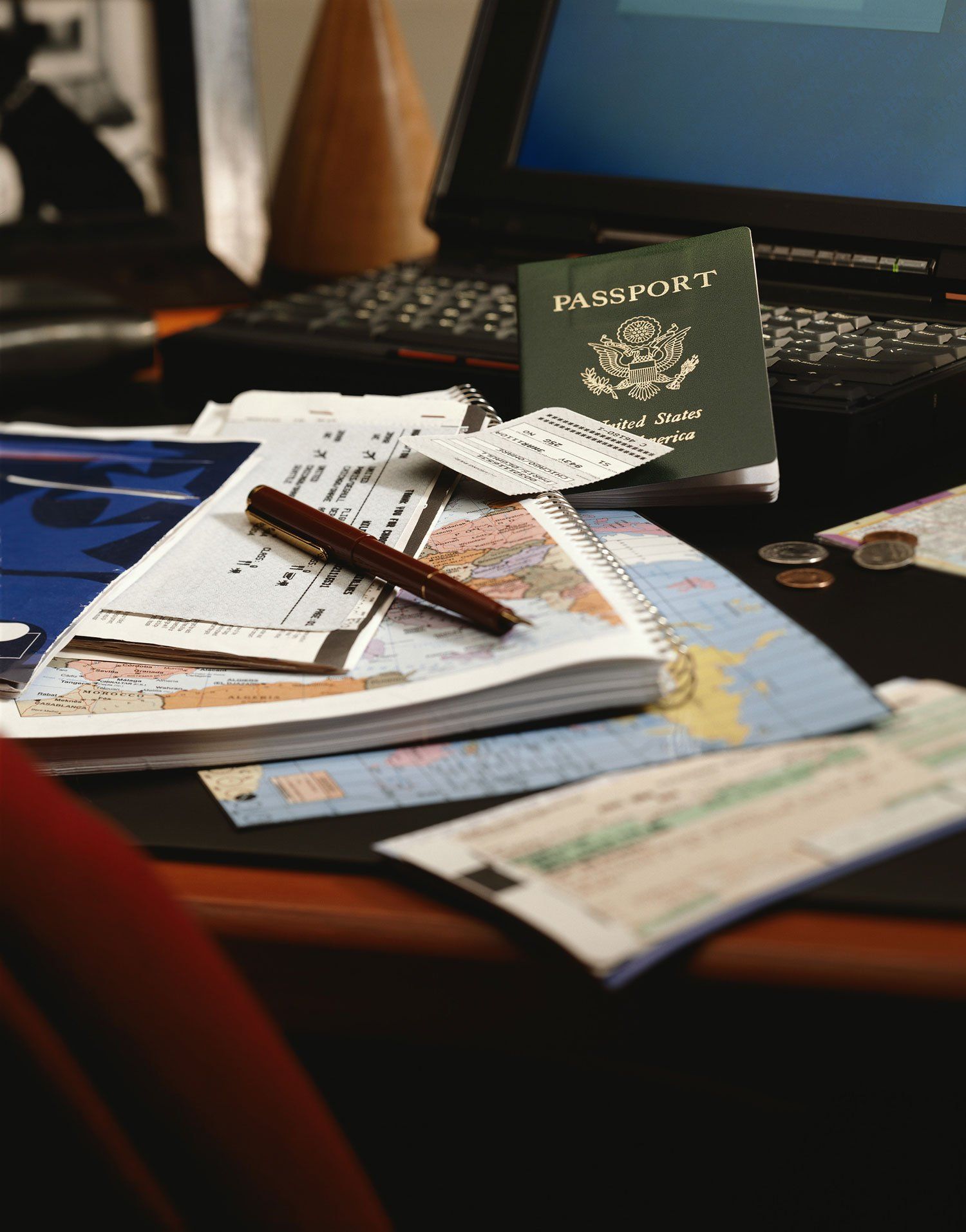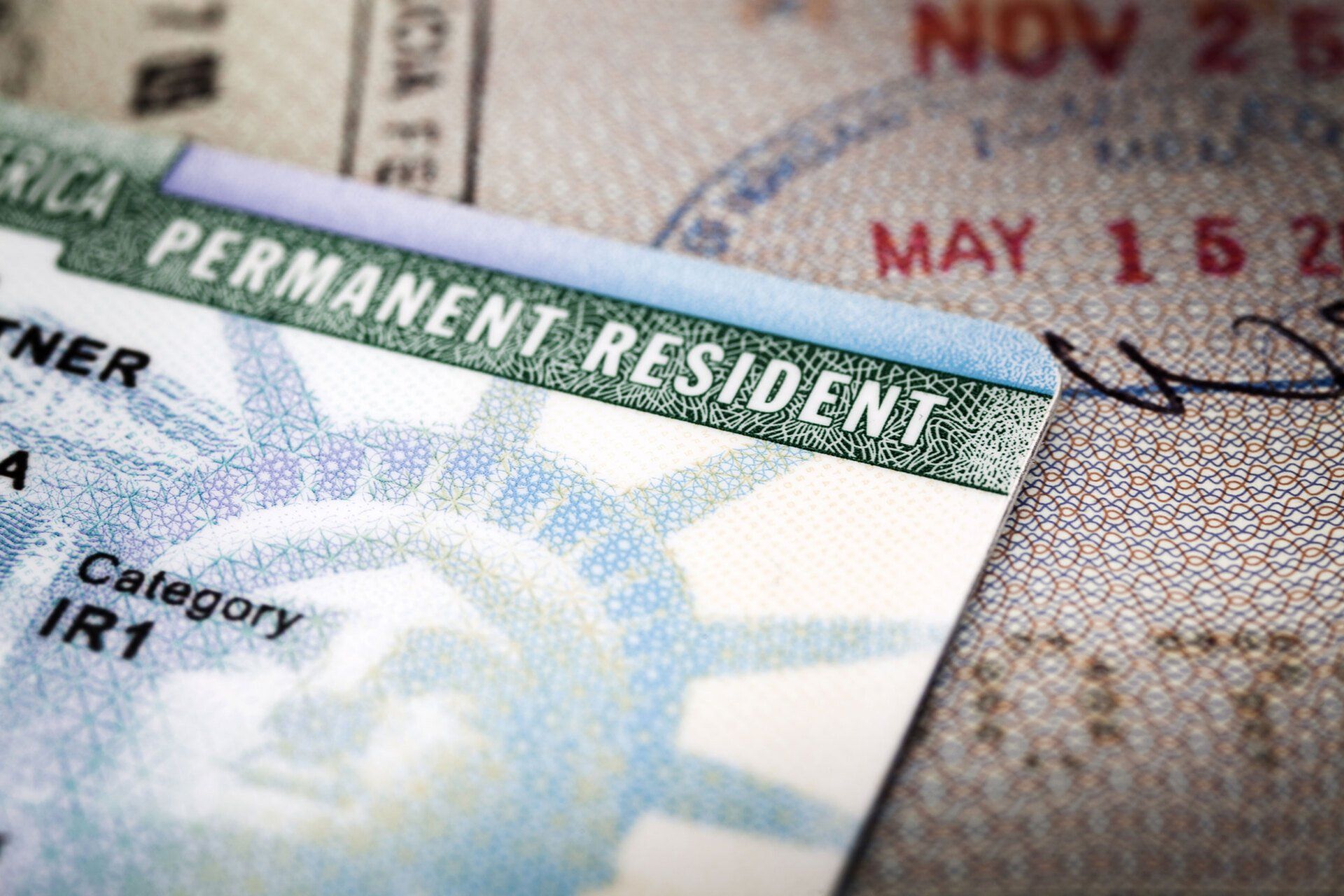Waiver 101
websitebuilder • January 14, 2022
A waiver is an immigration filing that waives a factor that would otherwise make someone inadmissible as an immigrant to the United States. There are many reasons that USCIS may determine someone is inadmissible. Here is a short list of some common examples:
• Being present in the U.S. unlawfully (without a visa)
• Committing certain crimes or spending time in prison
• Helping to bring others to the U.S. unlawfully
• Being found to have lied to law enforcement or immigration officials (entering the U.S. with false papers, misrepresenting facts at a visa interview)
Not all reasons for inadmissibility are eligible to be waived. Also, to be eligible for a waiver, applicants must have a ‘qualifying relative,’ defined as a U.S. citizen or lawful permanent resident spouse or parent. Waivers are typically part of a larger case strategy that involves other filings and ultimately attending an interview at the U.S. consulate in the applicant’s home country. This post outlines the most common types of waiver filings, but as with many areas of immigration law, there are exceptions, outliers, and special circumstances that may affect an applicant’s eligibility to qualify for a waiver or the particulars of any given waiver process.
Types of Waivers
There are two main types of waivers, typically referred to by their USCIS form names:
I-601 Waivers
can waive any reason for inadmissibility (as long as it’s eligible to be waived). They typically must be filed while the applicant is out of the country unless they are being filed as a response to a Request for Evidence issued after an adjustment of status interview.
I-601A Provisional Waivers
can only waive unlawful presence but have the advantage of being able to be filed in the U.S. before an applicant departs for their consular interview. This allows the applicant to remain with their family while they wait for the waiver approval and an interview date.
Extreme Hardship
The standard that most waivers are trying to prove is called Extreme Hardship. This standard is not clearly defined in immigration law but is rather up to the discretion of waiver adjudicators and interviewing officers. Basically, a waiver must prove that the applicant’s qualifying relative (spouse or parent) would suffer more than expected if the applicant is denied entry into the U.S. after their consular interview or if the qualifying relative had to move to the applicant’s home country in order to avoid separation. Of course, people are expected to suffer when separated from their family or upending their lives to move to a new country, but extreme hardship dictates that this suffering must be beyond the normal scope of emotional, financial, medical, or other hardship. It is important to cover both the separation and relocation scenarios when demonstrating extreme hardship. There are a number of factors that adjudicators are instructed to consider when evaluating extreme hardship and they must weigh the sum of these factors rather than looking at each factor individually.
So, what factors can be used to show extreme hardship?
USCIS’s guidelines on this subject are fairly comprehensive. There are particularly significant factors (which weigh heavily in supporting a finding of extreme hardship) and specifically enumerated factors (which can each be considered in meeting the standard of extreme hardship). Examples of each are as follows:
Particularly Significant Factors (Comprehensive List)
• QR (Qualifying Relative) previously granted Iraqi or Afghan Special Immigrant Status, T Nonimmigrant Status, Asylum or Refugee Status, or Withholding or CAT
• QR or related family member disability
• QR’s military service
• U.S. Department of State travel warnings for applicant’s home country (must have a high level of risk)
• Substantial displacement of care of applicant’s children
Specifically Enumerated Factors (Non-Comprehensive List)
• QR’s family ties in the U.S.
• QR’s responsibility to care for family members
• Nature of the relationship between the QR and applicant that would make separation more difficult
• QR’s length of residence in the U.S. and/or integration into U.S. culture
• Fear of persecution (religious or otherwise) in applicant’s home country
• Loss of job, education, or training opportunities
• Language or cultural differences
• Economic impact such as having to sell a home, termination of a professional practice, significant loss of income, inability to pay debts, or large additional expenses
• Medical conditions of QR or children and quality/availability of medical care in applicant’s home country
• Psychological impact on QR including past traumas that would make the separation more difficult
What Goes into a Waiver?
If it is determined that an applicant is eligible for a waiver and that they have a qualifying relative, the attorney will then outline the documents needed to prove the extreme hardship. Typically, the documents requested are from the qualifying relative, as that is who needs to show extreme hardship, but some attorneys will also request documents from the applicant. These documents will vary by attorney’s office but will usually include the following:
• Medical and/or mental health records
• Financial documents, such as bills, pay stubs, and taxes
• Proof of health insurance
• Rental agreements or mortgage documents
• Letters of support from family members, friends, and others in the community
• Any criminal records related to the applicant
• Birth certificates for any children born to the applicant and/ or their qualifying relative spouse
These documents from the applicant are supplemented by documents that they attorney will create or provide such as:
• Documents related to living conditions and/or safety concerns in the applicant’s home country
• Articles or documentation related to financial burdens, such as the cost of traveling to the applicant’s home country or the cost of childcare in the qualifying relative’s home state
• Affidavits or declarations from the applicant and their qualifying relative
The above documents make up an evidence packet that is used to support the narrative of extreme hardship. This narrative is laid out in the affidavits/declarations from the applicant and qualifying relative and is written out in the form of a legal brief or cover letter by the attorney. The goal of the narrative is to show how the evidence packet supports the extreme hardship that would occur if the applicant and qualifying relative were separated or if the qualifying relative moved to the applicant’s home country.
What Makes a Strong Waiver?
The most important thing to demonstrate in a waiver is that the case rises to the level of extreme hardship. The narrative detailed in the affidavits/declarations and cover letter is what ultimately makes the case for extreme hardship. These documents will reference items in the evidence packet to bolster the case and to provide concrete proof of any claims made. This narrative is written with an aim to convince the reader that the case meets the guidelines and also to sway the reader towards granting a favorable outcome. Because there is no concrete definition of extreme hardship, the adjudicator’s discretion plays a large role in deciding whether to approve or deny waivers. Here, discretion means the freedom to decide according to their own personal judgement. In this sense, getting across a moving story and appealing to the adjudicator’s humanity is an important aspect of a waiver filing. Because discretion plays such a large role, it can be tricky to guess if any given waiver will be approved. Though adjudicators are following guidelines, there is a lot of room for their own feelings and biases to influence their decisions. Attorneys will work with the applicant and their qualifying relative to craft the strongest case possible for each individual’s circumstances.
--------
This has been a fairly broad overview of the waiver requirements, structure, and process. Like most areas of immigration law, waivers are complicated and the general rules at play have plenty of exceptions. We hope this has been helpful in understanding some of the basics and please do not hesitate to contact our waiver experts here at Parker Butte & Lane!

U.S. Citizenship and Immigration Services (USCIS) released a reminder that as of October 28, 2025, it is accepting payments only through Pay.gov for benefit requests filed electronically, with some exceptions. For benefit requests mailed to USCIS, it will only accept ACH debit transactions using Form G-1650, Authorization for ACH Transactions , or credit, debit, or prepaid card payments using Form G-1450, Authorization for Credit Card Transactions . Those who qualify for an exemption from the requirement to use an electronic payment method should mail the benefit request, with the correct fee payment and a completed and signed Form G-1651, Exemption for Paper Fee Payment , to the appropriate lockbox . Practitioners recommend placing the form on top of the packet (including the cover letter) so USCIS sees the form first. USCIS said that those requesting an exemption must certify that electronic payment and collection methods are not possible and they meet one or more of the following requirements: • They do not have access to banking services or electronic payment systems; • Electronic disbursement would cause them undue hardship, as discussed in 31 C.F.R. Part 208; • Non-electronic transactions are necessary or desirable for national security or law enforcement reasons; or • There are other circumstances as determined by the Secretary of the Treasury, as reflected in regulations or other guidance.

On September 19, 2025, a presidential proclamation introduced a major change to the H-1B visa program: a $100,000 one-time fee for certain H-1B visa petitions. Effective September 21, 2025 at 12:01 a.m. Eastern daylight time, this fee applies to new petitions filed by employers seeking to bring in foreign workers in “specialty occupations.” Key Provisions Who the fee applies to : Only new H-1B petitions filed after the effective time/date. It does not apply to current H-1B holders, extensions, amendments, or petitions already filed before that time. Who pays : The submitting employer (petitioner) must pay the fee — it's not the beneficiary/visa holder. Duration: The restriction tied to this fee lasts for 12 months unless extended. Purpose : The policy aims to discourage companies from filling roles with lower-wage foreign workers instead of domestic ones, and to prioritize high-paid, highly skilled foreign workers. It also plans to adjust prevailing wage levels and possibly modify the way H-1B visas are selected under the cap (favoring higher wages). Clarifications & Exceptions Existing visa holders : If you already hold an H-1B visa, or have an approved petition that started before the proclamation’s effective date, you are not impacted by the new fee. Travel/return to the U.S., status renewals, etc., remain unaffected. Extension, amendment, change of employer : Standard renewals or changes for someone who already holds H-1B—not considered “new employment” under USCIS definitions—do not trigger the fee. National interest exemption : The Secretary of Homeland Security may waive the fee in certain cases, for particular individuals, entire companies, or industries, if hiring is deemed “in the national interest.” Anticipated Impacts For Employers Increased Costs : Employers face a dramatic rise in the cost of sponsoring new H-1B employees. Historically, filing fees totaled several thousand dollars; the additional $100,000 surcharge significantly alters cost-benefit considerations. Hiring Decisions : The fee is likely to deter some employers from sponsoring new H-1B workers, particularly in lower-salary positions. Operational Shifts : Companies may reconsider workforce planning, evaluate alternative visa categories (L-1, O-1, TN), or explore remote employment options abroad. For Foreign Nationals Reduced Opportunities : Prospective H-1B candidates may face fewer sponsorship offers as employers reevaluate their budgets and hiring strategies. Timing Considerations : Individuals with pending or approved H-1B petitions filed before September 21, 2025, remain unaffected, underscoring the importance of filing timelines. Alternative Pathways : Candidates may increasingly look to other immigration categories or consider employment opportunities in countries with more favorable immigration regimes. For the Broader U.S. Economy Talent Acquisition Challenges : Industries dependent on highly skilled foreign workers—particularly technology, engineering, and healthcare—may experience shortages. Global Competitiveness : Critics warn that the surcharge could reduce the United States’ attractiveness as a destination for top global talent. Legal Challenges : Several states, including California, have already started litigation challenging the proclamation. Unresolved Questions Collection Mechanism : Details on how and when the fee will be collected (e.g., at petition filing, visa issuance, or port of entry) remain unclear. Scope of Waivers : It is not yet known which categories of workers or industries may be considered for discretionary exemptions. Future Extensions : Although the measure is set to expire in 12 months, there is potential for extension or for Congress to enact related legislation. What Employers & Foreign Workers Should Do Now Evaluate Pending and Planned Filings: Employers should review all upcoming H-1B petitions and consider advancing filings prior to the effective date where possible. Assess Workforce Needs : Companies should carefully weigh the costs of new H-1B sponsorships against alternative visa options or domestic hiring strategies. Budget for the fee when planning hiring:, especially for roles that will require new H-1B approvals. Monitor Legal Developments: Litigation may affect implementation or duration of the fee. Employers should remain informed of ongoing challenges. Seek Legal Guidance: Immigration counsel can advise on exemptions, alternative visa categories, and compliance strategies tailored to specific business needs. Bottom Line The new $100,000 H-1B fee marks a significant shift in the U.S. approach to high-skilled migration. It makes the cost of sponsoring a brand-new specialty-occupation worker much higher, while protecting status and benefits for existing H-1B workers. Its short-term effect will be felt immediately by employers and prospective foreign workers outside the U.S., and its long-term implications may reshape how H-1B is used in the tech, health, and engineering sectors.

Immigration agents may come to your workplace for a Form I-9 audit ; a raid ; or to detain specific people . What is a Form I-9 Audit? A Form I-9 audit is when ICE comes to your business to check if you followed the rules for Form I-9. Form I-9 confirms a worker’s identity and authorization to work in the U.S. Employer I-9 Requirements Form I-9 is required for all new employees. You must keep I-9 forms on file for 3 years after hiring or 1 year after the worker’s last day of work, whichever is later. Do not ask a worker to fill out Form I-9 more than once unless their work permit is about to expire or you have another valid, legal reason. Note: You do not have to keep copies of a worker’s ID or work authorization documents. If the Audit Does Not Go Well . . . If ICE decides you did not follow the Form I-9 rules, you may face: An order to stop hiring people without valid work permits. Civil and criminal fines and penalties. Learn more about Form I-9 in the Handbook for Employers at https://www.uscis.gov/i-9-central/ form-i-9-resources/handbook-for-employers-m-274. What Is an ICE Raid? ICE agents go to a worksite without warning as part of an investigation into an employer. ICE agents are not police officers. But their uniforms may say “Police” or “Federal Agent.” They may carry guns. Sometimes local police officers or agents from other federal agencies go with ICE agents on ICE raids. What if ICE Wants to Detain a Specific Worker? ICE agents may come to your business to try to find a particular person (or people). While they are there, they may try to question, detain, and even arrest other people. HOW EMPLOYERS CAN PREPARE FOR ICE ACTIONS 1. Make a Written Response Plan Ahead of Time Talk to other businesses or business associations. Ask what they are doing to prepare. Make a plan that works for you. Practice – just like a fire drill. You will be more prepared if you know what to say and do. Connect with immigration response networks in your area. They provide support with family, legal, financial, and media concerns if immigration agents come to your business. 2. Train Your Staff to NOT TALK to ICE Agents Train all workers to NOT allow ICE agents to enter your workplace. A worker can say, “I can’t give you permission to enter. You must speak with my employer.” Train all workers to NOT interact with ICE agents. If ICE agents have questions or requests, workers should say nothing, or say, “You are not allowed to enter. Talk to my employer.” 3. Know Your Rights! Employers have rights when ICE goes to a business. ICE agents do not always have a right to enter your business, stop or arrest workers, or take documents. Work with a community or legal group to arrange a “Know Your Rights” training for you and your staff and pay your staff for the time they spend in training. WHAT EMPLOYERS SHOULD DO WHEN ICE ARRIVES For Public Areas Anyone – including ICE agents – can enter public areas of your business without permission. Public areas include a dining area in a restaurant; parking lot; lobby or waiting area. Being in a public area does NOT give ICE the authority to stop, question, or arrest just anyone. No one can enter a private area of your business without your permission or a judicial warrant. TIP: To show that some areas are private, mark them with a “Private” sign, keep the doors closed or locked, and have a policy that visitors and the public cannot enter those areas without permission. For Private Areas Immigration agents can enter a private area ONLY IF they have a judicial warrant. A judicial warrant must be signed by a judge and say “U.S. District Court” or a State Court at the top. Without a judicial warrant, ICE agents need YOUR permission to enter private areas of your business. If ICE agents try to enter a private area, you should say: “This is a private area. You cannot enter without a judicial warrant signed by a judge. Do you have a judicial warrant?” If ICE agents tell you that they have a judicial warrant, ask for a copy and read it. The employer can accept the warrant but still decline to consent to the search. Sometimes, ICE agents try to use an administrative warrant to enter. But an administrative warrant does NOT allow agents to enter private areas without your permission. Administrative warrants are not from a court. They say “Department of Homeland Security” and are on Forms I-200 or I-205. During the Raid Stay calm! Ask workers to stay calm, too. Do not run to the exits. This will make things worse because ICE agents can say that people who are running are likely violating immigration laws. When ICE shows you an administrative warrant with an employee’s name on it: You do NOT have to say if that employee is working on that day or not. You do NOT have to take the ICE agents to the employee named on the warrant (even if he or she is at work at the time). Do NOT help ICE agents sort people by their immigration status or the country they are from. Watch the agents and see if they are complying with what’s written in the warrant. If the agents are searching areas not listed in the warrant, object to those searches by voicing your objection and noting it. If you or an employee is willing, you should video or record what the ICE agents do at your workplace. You may be able to prove the agents violated your rights or the workers’ rights. Save any company surveillance footage taken during the raid. What if ICE Agents Try to Stop, Question, Detain, or Arrest a Worker? ICE agents may try to stop, question, or even arrest a worker without the proper authority. The best way for workers to protect their rights is to stay silent and ask for an attorney. Workers do not have to hand over any IDs or papers to ICE. All workers have this right. Any information that workers give to ICE can be used against them later. Immediately After the Raid Write or record these things after ICE leaves: How many ICE agents were present (inside and outside)? How were the agents dressed? How were they armed? Did the agents make you or the workers believe you could not move or leave? Did the agents mistreat anyone? If yes, how? Notify the employees’ union. If ICE arrests any of the workers, ask the ICE agents where they are being taken. This information will help the worker’s family and lawyer find the person. What to Do in an I-9 Audit When ICE notifies you that there will be a Form I-9 audit, contact an immigration lawyer. Also notify the workers and, if they have one, their union representative about the audit. The law gives you 3 work days to produce your I-9 Forms. Do not provide your documents early. You have the right to speak to your lawyer before answering questions or signing ICE documents. Allow the employees to have coworkers or union representatives present when discussing I-9 audits. After reviewing the I-9 forms, ICE may find some employees are not authorized to work. If that happens, ICE will give you 10 days to provide valid work authorization for these employees. If you can’t provide the documents by that time, you will be told to end their employment. If this happens, you must notify the affected workers of the audit. Ask ICE for more time. This will give affected workers more time to talk to an immigration lawyer. If the workers belong to a union, you may need to provide copies of the audit documents to the union and work with the union as you respond to the audit. What to Do After an ICE Raid or I-9 Audit After an ICE raid or I-9 audit, one or more of the workers may face deportation or be unable to return to work. This could impact your business and workers' morale. Here is what you can do to provide support to the staff and community. OFFER LEAVE WHILE AFFECTED WORKERS APPLY FOR WORK AUTHORIZATION Give affected workers leave while they take care of getting their papers, or allow them to return to their same positions with full seniority and benefits once they provide their authorization papers. PAY WAGES & BENEFITS PROMPTLY Pay workers any wages and benefits they are due. Make sure you follow the requirements of federal and state labor laws. PROVIDE SEPARATION PAY TO WORKERS WHO CANNOT RETURN TO WORK Workers who are not able to return to work will need money to support themselves and their families. They may need to pay for legal assistance. If you do not have a separation pay policy, consider giving extra funds to workers in this DURING AN IMMIGRATION ACTION If ICE agents enter a public area of your business, say: “I am the employer. You cannot go to other areas of the workplace without my permission.” If ICE agents try to enter a private area, say: “This is a private area. You cannot enter without a judicial warrant signed by a judge. Do you have a judicial warrant?” Encourage your staff to video or take photos during an immigration action (if they are willing). If the agents have a judicial warrant signed by a judge, ask for a copy and read it. Make a copy if you can. You can still decline to give consent for the search. Watch the agents carefully. Keep track of what they do. See if they are following what is written on the warrant. For example, the warrant may limit the areas the agents can search. If ICE agents try to question you or the workers, remind the workers they have a right to stay silent and to ask for a lawyer. When immigration agents leave, record or write down everything you saw. This will help you remember the details when you talk to a lawyer later.

The Department of Homeland Security (DHS) announced a final rule, effective January 17, 2025, that will "significantly enhance U.S. companies' ability to fill job vacancies in critical fields, strengthening our economy." The new rule "modernizes the H-1B program by streamlining the approvals process, increasing [DHS's] flexibility to better allow employers to retain talented workers, and improving the integrity and oversight of the program." To implement this rule, a new edition of Form I-129, Petition for a Nonimmigrant Worker, will be required for all petitions beginning January 17, 2025. Among other things, the final rule: • Updates the definition and criteria for specialty occupation positions and for nonprofit and governmental research organizations that are exempt from the annual statutory limit on H-1B visas. • Extends certain flexibilities for students on an F-1 visa seeking to change their status to H-1B to avoid disruptions in lawful status and employment authorization for those F-1 students. • Allows U.S. Citizenship and Immigration Services (USCIS) to process applications more quickly for most individuals who had previously been approved for an H-1B visa. • Allows H-1B beneficiaries with a controlling interest in the petitioning organization to be eligible for H-1B status subject to "reasonable conditions." • Codifies USCIS' authority to conduct inspections and impose penalties for failure to comply. • Requires employers to establish that they have a bona fide position in a specialty occupation available for the H-1B worker as of the requested start date. • Clarifies that the Labor Condition Application must support and properly correspond with the H-1B petition. • Requires the petitioner to have a legal presence and be subject to legal processes in court in the United States. There will be no grace period for accepting prior form editions, DHS said. USCIS will soon publish a preview version of the new Form I-129 edition on uscis.gov.

On December 10, 2024, the US Citizenship and Immigration Service (USCIS) released an updated edition of Form I-485, Application to Register Permanent Resident or Adjust Status , which includes changes to questions and instructions. Starting February 10, 2025, USCIS will only accept the 10/24/24 edition of Form I-485, and any older versions will be rejected. The key updates in the new edition of Form I-485 are: Applicants who need to submit Form I-693, Report of Immigration Medical Examination and Vaccination Record, or a partial Form I-693 (e.g., vaccination record), must submit it with their Form I-485. If Form I-693 is not submitted when required, the Form I-485 may be rejected. Applicants who are exempt from the Form I-864, Affidavit of Support, requirement can now request the exemption directly on Form I-485, instead of submitting Form I-864W, Request for Exemption for Intending Immigrant's Affidavit of Support. Form I-864W has been discontinued and removed from uscis.gov. USCIS has clarified questions regarding the public charge ground of inadmissibility. Applicants will now be required to identify their immigrant category, which will help USCIS determine if applicants are exempt from this ground and allow USCIS to process their application more efficiently. The change is intended to reduce confusion for applicants who typically either misunderstood or answered these questions incorrectly. The form has been streamlined to collect information more efficiently, and instructions and requirements have been consolidated and clarified.

Rich has been increasing access to legal services for low-income Oregonians since 2002....Rich has served as the Chair of the Pro Bono Committee of the Oregon State Bar (OSB) Debtor-Creditor Section.....Rich considers pro bono work a necessary part of being a professional with a particular skill. He has a long history of volunteer work that goes back to his time as a Boy Scout. In addition to his volunteer work with the clinic, Rich volunteers with the bankruptcy court's pro bono panel that provides legal assistance to a party, such as help with a settlement conference or bankruptcy litigation. Rich also provides pro bono help with student loan disability discharge applications. Richard explains, "I have always believed in second chances and giving people a fresh start. Our system is great at production of resources and assets, but less than perfect at distribution. Many times, "success" seems very random. Ask almost any musician." Rich's pro bono work truly helps people in need and often experiencing life-changing circumstances. He is currently helping a client who suffered a brain injury after becoming a licensed realtor. The client is unable to pursue her career in real estate and now works an an Instacart shopper. Rich has been volunteering with the bankruptcy clinic for more than two decades and has represented more than 79 clients.....Rich simply encourages attorneys to get involved, "it is not painful, and you do not have to worry about getting paid." Rich found through his many years of volunteer work, that "you feel better about both your profession and yourself." Read the full article here .

By Shannon Ballard Gorman A career in immigration law came naturally to Gretel Ness ’93. “It’s such a positive area of the law. You are challenged and you make a difference in people’s lives. It’s very fulfilling.” Ness’s grandparents, doctors who immigrated to the U.S. in the 1970s, sponsored her father when he was in college in the Philippines, but because of quotas, there was such a long wait that he was married and had a family before he could immigrate. Ness vividly remembers her family going to the U.S. Embassy in Manila and being interviewed by the consular officer. Her first time on an airplane was to Newark to begin a new life. She was 15. After high school, Ness attended Rutgers University for Political Science, and then set her sights on law school. “I always knew I wanted to be a lawyer,” she said (at least since age 13 when she saw a show starring a female attorney and was impressed) and her personal experience led to an interest in immigration law. She chose Albany Law School because of its immigration law classes and smaller, supportive environment. In law school, she successfully navigated the process to earn U.S. citizenship. An internship with the Government Law Center prompted her to consider working for the government. Before graduation, she applied to the U.S. Immigration & Naturalization Service (INS) and was hired by the Newark office of the INS as an Asylum Officer. On one assignment, she went to Guam to interview Kurdish refugees from Iraq seeking asylum in the U.S. While there, she met her future husband, a Deportation and Detention Officer from Oregon. Despite their polar opposite jobs (“We don’t bring work home,”) they have been married for 26 years. “It was one of those whirlwind romances,” Ness laughed, and since her husband would not move to New Jersey, she “quit her cushy federal job to follow him to Oregon.” In Portland, she joined a small firm as an associate attorney, doing immigration law work. After two years, she followed her paralegal to a larger firm, Parker Butte & Lane, P.C., entirely dedicated to immigration. Immigration is a paralegal-driven field, she said, and after 23 years she is still there and with the same paralegal. The majority of her practice deals with employment immigration matters such as arranging temporary and skilled worker visas and helping clients with proactive immigration planning, whether for future personnel needs or for compliance with employment verification requirements. She also handles cases involving family immigration and citizenship issues. Many of her clients are aviation companies that hire specialized pilots from Canada to fly the airplanes used in fighting forest fires for the U.S. Forest Service. “Canada has so many forest fires, they have developed the infrastructure necessary to fight them—including the pilots and mechanics to operate the planes,” Ness explained. She helps arrange their necessary visas to work in the U.S. Ness also advises corporations looking for talent overseas on work visas or, if none matching their needs are available, pursuing green card sponsorship. Her firm also helps arrange a temporary work visa. Sometimes her client is the employee, whom she helps by initiating or coordinating their employer’s sponsorship. “No matter which party starts the process, you have to represent both,” Ness said. Sharing her experiences with new attorneys was the focus of her recent speaking engagements including the Regional Northwest conference of the American Immigration Lawyers Association. Ness belongs to the association’s Asian Pacific Chapter and traveled to i ts annual conference in Japan in May. She hopes to attend the Latin American chapter’s annual conference in Uruguay this November and explore neighboring Argentina. Ness loves to travel, and plans trips around conferences. “It’s nice to have been to the places where my clients are coming from,” she said. “It helps me relate to them and gives me a better understanding of the challenges and hurdles they have overcome.”

• The Avalanche Impact of Backlogs: 2021 in Review. USCIS has frequently had to confront the impacts of its backlogs, but neither the backlogs nor their impacts have been as severe as the ones the agency currently faces. Lengthy processing times and the high numbers of unadjudicated cases—a result of the pandemic’s unprecedented effect on USCIS’ operations, employee attrition, and insufficient revenue—have had a massive adverse “snowball” effect on the agency’s operations as well as on its customers and stakeholders. To fully address the backlogs, USCIS must also continue to address their consequences. USCIS’ commitment to mitigating its backlogs of cases, as evidenced by setting aggressive processing goals for the end of FY 2023, must be matched with a full commitment to eradicating the worst of these pain points for applicants and petitioners so that they may continue to work, travel, obtain evidence of status, and be able to access expedited processing, when eligible, in a meaningful and consistent way. • The Need for More Flexibility in Renewing Employment Authorization. Delays in renewing EADs interrupt employment for noncitizens while simultaneously hampering the ability of U.S. businesses to employ their workforce continuously. In the Annual Report, we recommend that USCIS build on existing efforts to mitigate the impact of EAD delays by increasing flexibility in the EAD renewal process, including for certain nonimmigrant spouses; continuing to identify occupations where EADs might be expedited in the national interest; further leveraging technology in support of EAD adjudications; allowing more flexibility in the Form I-9, Employment Eligibility Verification, process; and eliminating the need for a separate EAD application in certain circumstances. • Increasing Accessibility to Legitimate Travel: Advance Parole. Due to processing delays, adjustment of status applicants find it difficult to receive advance parole documents in a timely manner, which has led to more requests for USCIS to expedite Form I-131, Application for Travel Document, and to issue advance parole for emergencies. The Annual Report presents several recommendations to reduce barriers to travel and enable USCIS to better manage the process of providing advance parole. • Improving Access to the Expedite Process. USCIS operations have been affected by the pandemic and insufficient resources, resulting in longer processing times for expedite requests. The expedite request caseload has consequently increased, further diverting resources within the agency and making it challenging for USCIS to process these requests efficiently. The Annual Report includes several recommendations for making the expedite request process more efficient, standardizing guidance on the process, and increasing efforts to collect data on the number of expedite requests USCIS receives as well as approval and denial rates. • Initiating a Discussion on Ways to Address the Affirmative Asylum Backlog. The asylum backlog has grown to more than 430,000 pending cases, with devastating impacts on asylum seekers and their family members. In the Annual Report, we offer recommendations to address the backlog and identify new operational approaches to improve the quality and efficiency of asylum adjudications without compromising integrity or fairness. These recommendations are intended to spark a crucial discussion on innovative ways to address the backlog. • Eliminating Barriers to Obtaining Proof of Employment Authorization for Asylum Applicants in Removal Proceedings. Asylum seekers, particularly those in removal proceedings, encounter significant barriers to obtaining proof of their employment authorization, both while their Form I-589, Application for Asylum and for Withholding of Removal, is pending and after an immigration judge grants asylum. These barriers arise in part because the asylum process is split between USCIS and the Department of Justice’s Executive Office for Immigration Review. The Annual Report outlines several recommendations aimed at improving coordination and decreasing delays in processing EADs and providing evidence of status. • USCIS’ Digital Strategy: Nearing an Inflection Point. While there is more work to be done, we are optimistic that USCIS’ digital strategy is nearing an inflection point that will allow for continued positive progress. The Annual Report offers several new recommendations focused on developing an application programming interface; digitizing Form I-912, Request for Fee Waiver; conducting a nationwide online filing and myUSCIS promotion campaign; and exploring ways to incentivize online filing. • U Nonimmigrant Status Bona Fide Determination Process: Successes and Challenges in Taking on a Backlog. The Immigration and Nationality Act allows certain victims who assist law enforcement with a criminal investigation to apply for a U visa. However, due to high demand in this capped category, processing times for U nonimmigrant status have increased. To alleviate the negative effects of these backlogs, USCIS implemented the bona fide determination (BFD) process, which allows the agency to grant eligible petitioners employment authorization and deferred action more efficiently. In this year’s Annual Report, we explore some of the successes and challenges of the U visa BFD process. To read the full report, go to https://www.dhs.gov/sites/default/files/2022-06/CIS_Ombudsman_2022_Annual_Report_0.pdf

1. Donate Monetary donations are the quickest and most helpful way to directly aid Ukrainian refugees around the world. There are a huge number of organizations currently raising money for Ukraine and it can be overwhelming to parse through all the options. Here are 4 organizations that will ensure your donation helps as many people as possible: Razom is a non-profit organization dedicated to ‘unlocking the potential of Ukraine.’ Founded in 2014, Razom works with collaborators in the United States and Ukraine to fund short and long-term projects dedicated to fostering democracy and prosperity. They take just about any form of donation you can think of, including stocks and cryptocurrency. Check out their website’s list of projects to see details on their emergency response to the war, as well as other current projects. See https://razomforukraine.org World Food Program USA is focused on providing food to Ukrainian people as they flee their country and shelter from daily attack. Donors can opt for a one-time or monthly gift in any amount $5 or above. For $75, they provide emergency boxes with enough food for a family for a month. See https://secure.wfpusa.org Direct Relief has a focus on providing medical supplies including medication, emergency response packs, sutures, insulin, personal care items, and oxygen concentrators. They are partnered with Ukraine’s Ministry of Health and other organizations on the ground in Ukraine and are responding to real-time requests for supplies. There is a helpful tracker on their webpage to track aid provided to Ukraine. See https://www.directrelief.org/place/ukraine/ Alight currently has a rapid response team in Poland aiding the 1 million Ukrainian refugees (mostly women and children) who have crossed the Ukrainian/Poland border. They are set up at the border to greet people arriving to Poland and are distributing warm clothes, blankets, and wheelchairs. Alight is also transporting medical supplies and necessities such as diapers and phone chargers from Poland to Ukraine, directly to groups sheltering in bomb shelters and hospitals. See https://wearealight.org/ukraine-response/ 2. Shop Local Ukrainian Businesses Another means of financial support is to seek out local Ukrainian businesses and offer them your patronage. While you won’t know if the money will go to people on the ground in Ukraine, there is a good chance that Ukrainian business owners are desperate to help their family members still in Ukraine. In any case, Ukrainians around the world are hurting as they watch their home country burn and its people flee. Providing support to those in your community is the neighborly thing to do. Many other businesses, not necessarily owned by Ukrainians, are holding fundraisers or special menu items to benefit Ukraine. Some suggestions for the Portland area: Portland artist Tatyana Ostapenko: https://tatyanaostapenko.com Sweet Touch Bakery (Vancouver): https://www.sweet-touchbakery.com/ Honey Latte Café: https://www.honeylatte.cafe/ Kachka, often described as a Russian restaurant, actually showcases food from around the region, including Ukraine and Belarus. They have a wine cocktail on the menu and a dumpling in their market that are helping to raise money for Ukraine: http://www.kachkapdx.com/ Ripe Cooperative is donating 100% of profits from Bulgarian caviar to Ukrainian aid efforts: https://ripecooperative.com/ Portland Potato Vodka is donating profits to Ukraine: https://www.instagram.com/p/CamVWHIuLh3/ 3. Raise Money If you are not in a financial position to donate money directly, you can facilitate fundraising through a few different avenues. Alight, mentioned above, has an option on their website to host a fundraiser for Ukraine (See https://give.wearealight.org/campaign/) or you can start a fundraiser through your personal Facebook or a site like GoFundMe. Another option is hosting your own web class and donating the proceeds to Ukraine. If you have a special skill like baking, music, or crafting that others might be interested in, set up a Zoom link and advertise! Make sure to let participants know that their money is going to an excellent cause. 4. Join a Protest Protests have been springing up around the country in response to the atrocities being committed by Russia. There was a rally at Fairview Ukrainian Bible Church which drew over 1,000 people and one in downtown Portland on Feb 26. There have been a number smaller gatherings around the city as well. Search for protest or rally announcements online and give of your time to offer support to the Portland Ukrainian community. It will mean a lot to them to have the community support. 5. Contact your Representatives Want to see the federal government taking more steps to aid Ukraine? Lend your voice to those calling for money and other resources to be sent to Ukraine and for immigration solutions for those stuck in or fleeing Ukraine. Contact information for Oregon/ Portland representatives can be found here: Senator Ron Wyden: https://www.wyden.senate.gov/ Senator Jeff Merkley: https://www.merkley.senate.gov/ Look up your Representative in the House by zip code: https://www.house.gov/representatives/find-your-representative

The war in Ukraine has been raging since February 24 when Russia invaded and began escalating the conflict that had simmered since 2014. The war has destroyed thousands of buildings, caused billions in property damage, and most importantly, has killed or injured over 17,000 people. Horrifyingly, an additional 3 million people have been driven from their homes and forced to seek refuge in other parts of Ukraine, in neighboring countries, or as far away as they can run. Ukrainians in the U.S. In response to the humanitarian crisis caused by the war, the United States has provided Temporary Protected Status (TPS) to Ukrainians already in the U.S. TPS provides protection for people from countries that are experiencing an ongoing armed conflict, environmental disaster, or other extraordinary conditions which would make deportation back to their country particularly dangerous. Over 70,000 Ukrainians currently present in the U.S. could be eligible for TPS. To be eligible, you must meet the following criteria: • Be a national of the country with TPS designation • Be continually present in the U.S. from the effective date of designation • Have continuously resided in the U.S. from a date specified by the secretary of the U.S. Dept. of Homeland Security • Never have been convicted of a felony or two or more misdemeanors while in the U.S. • Not be barred from asylum eligibility or found inadmissible for other crimes or for national security reasons Those who qualify for TPS must register and pay fees and in return are given a temporary stay of deportation and temporary work authorization. The current TPS designation is good for 18 months from March 1, though it may be extended. U.S. Immigration and Customs Enforcement (ICE) has also announced a temporary halt of deportations to Ukraine, Belarus, Georgia, Hungary, Moldova, Poland, Romania, Russia, and Slovakia while the Russian invasion is ongoing. Advocacy groups are lobbying the President, DHS, and the State Department to further the protections offered by the U.S. and grant Deferred Enforced Departure (DED) and Special Student Relief (SSR) for Ukrainians in the U.S. DED is similar to TPS, in that it temporarily suspends deportations and allows beneficiaries to receive work cards. The main difference is that DED is granted by the President and TPS is granted by the Secretary of Homeland Security. SSR is a particular form of relief for Ukrainian students currently attending U.S. schools on F-1 student visas. It would suspend or alter F-1 visa rules regarding course loads and work eligibility to allow students to Ukrainians in Europe Out of the millions of Ukrainian refugees in Europe, most have fled to nearby countries such as Poland, Hungary, and Slovakia. Because the outcome of the war is still so unclear, many people aim to stay close to Ukraine in case there is a chance of returning home soon. As matters progress in Ukraine, it will become clearer if refugees will be able to return or if they will need permanent resettlement. President Biden has announced that the U.S. will welcome Ukrainian refugees with open arms, but the reality for Ukrainians who may wish to permanently resettle in the U.S. is much more complicated. The process for coming to the United States as a refugee is years-long and complicated. Obtaining temporary visas is also likely to be a lengthy process, due to extended wait times, which had already been exacerbated by the pandemic and are set to grow longer with a surge in applicants. Receiving a temporary, non-immigrant visa also requires proof that the applicant will return to their home country, which is not likely to be something many Ukrainians can prove. Humanitarian parole is another option, although one only open to Ukrainians with U.S. citizen or permanent resident family who can sponsor them. For info on Humanitarian Parole as a process, see our blog post on the Humanitarian Parole crisis in Afghanistan here. As the war continues and legal avenues to U.S. immigration are few, the U.S. is likely to experience an increase in illegal immigration, such as Ukrainians crossing the southern border from Mexico without valid visas. U.S. Foreign Aid for Ukraine The U.S. has taken some steps to provide aid for Ukrainian refugees and civilians in Europe. President Biden has authorized over $107 million in humanitarian aid, which will go towards relief such as medical services, food, shelters, and other necessities. On March 15, President Biden signed a massive government spending bill containing a $13.6 billion aid package for Ukraine, which includes money for military assistance, refugee care, and economic aid for Ukrainian ally countries. The U.S. has also issued economic and trade sanctions against Russia and has passed legislation banning the import of Russian oil. U.S. support of Ukraine has stopped short of backing a no-fly zone over Ukraine, which would ban Russian planes from flying over Ukraine. This would likely help with the air assault that Ukraine has been facing but enforcing the no-fly zone would likely consist of actions that Russia would take as acts of war. The United States has also declined to send troops to fight in Ukraine, further signaling a reluctance to become directly involved in the conflict. Many NGO’s, non-profits, and other organizations in the U.S. and around the world are taking up for Ukraine by providing money and aid to Ukrainians everywhere. Look for our next blog post detailing how you can help the effort to support Ukrainian refugees in large and small ways.





